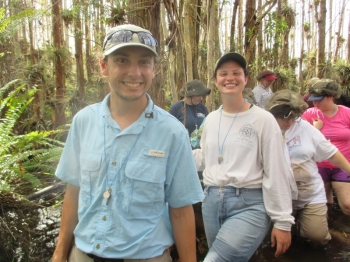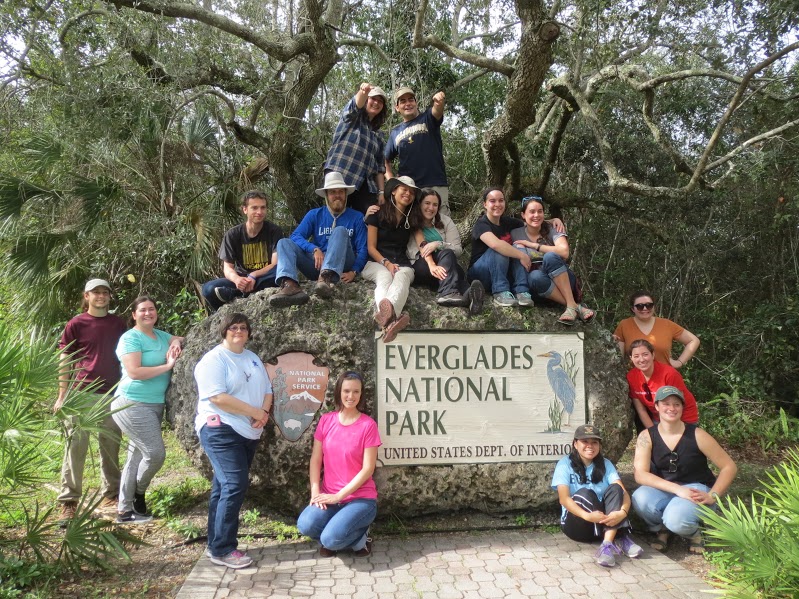
Honors students Melanie Sferrazza '17, an environmental science junior, and Michael Pashkevich '17, a biological sciences senior, recently spent a week in Everglades National Park learning about invasive species threatening the health of our national parks.
The experience was through Partners in the Park, an outdoor experiential learning program coordinated by the National Collegiate Honors Council. The group has sponsored 55 projects at 37 different parks for more than 500 student participants.
Sferrazza and Pashkevich were two of 16 students to participate in the Everglades National Park experience. The Office of Mission and Ministry and the Environment Program provided funding for the trip.
Sferrazza said she and Pashkevich learned during the experience about a problem the Everglades National Park is having with the overpopulation of pythons in the park. "It's interesting to learn about," she said.
Park rangers' theory is that a pet owner probably released a python, which is native to southeast Asia and is one of the five largest species of snake in the world, after they could no longer care for it. Because there are no natural predators in the area, the python population exploded. There are now more than 100,000 pythons in the park. Park rangers have seen a 70 percent reduction in the mammal population as a result of the reptile.
"In addition to the plant and animals life, [we] were able to spend many days with some of the most knowledgeable park rangers I have ever met. These rangers provided us with in-depth lessons including fire resistant trees, star patterns, the invasion of pythons into the Everglades, and the way climate change threatens this all. I would have never been able to have this incredible experience if Loyola and the Environment program hadn’t supported and sponsored me to learn and now share this incredible information," she said.
Naomi Yavneh, director of the University Honors Program and vice president of the National Collegiate Honors Council, said the experience allows students to get out of their comfort zone and learn about topics that they might otherwise ever be exposed too.
"I think it’s really eye-opening. You need to have some sort of disruptive experience to really learn. And this is 24-7 learning," Yavneh said.
Yavneh, herself, took a trip with the program last summer to Rocky Mountain National Park and two more Loyola students are planning to attend a program in Glacier National Park in summer 2016.
"The accomplishment of hiking for six hours and getting to the top of a mountain and seeing a flower that only blooms there, if you think about it from an Ignatian perspective, it's an opportunity to see God in all things and an opportunity to work collaboratively with other people. It builds a very strong community among the students," she said.

